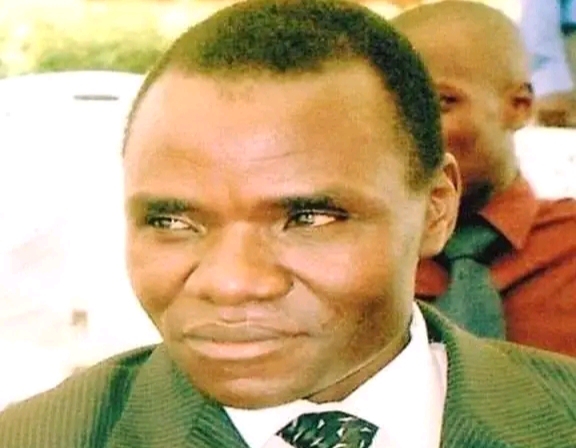Education is a political institution: It can be used for both good or bad intentions
These educational frameworks raise critical questions about the quality of education accessible to the masses and the intentions of the political elite in their implementation.

Op-Ed: This subject of Uganda’s education under this regime has be my subject of critical concern since 1996 and 2001. I never supported the way it was introduced, implemented, funded and facilitated. The same has come under the Competence Based Curriculum.
I still warn fellow Ugandans: open your eyes wide. This, I am certain, is dangerous elite manipulation, with the backing of the faceless evil western capitalism.
We did the same fatal mistakes with blindly liberalising our economy, privatising public enterprises, killing cooperative, and recklessly opening up our economy to private foreign investors.
Now, to drive the last nail in our coffin, they have invaded our education system, to promote illiterate political graduates and pseudo intellectuals in the name of the science and industrial skills paradigm, ditching your culture, history, social values, civilisation, to satisfy the greedy interests of western pharmaceutical industries, factories, banking sector, and IT industry.
Plato’s allegory of the cave presents a compelling metaphor for understanding knowledge and reality, illustrating how individuals can be trapped in illusions, only to discover deeper truths about existence.
In the context of contemporary politics in Uganda, this allegory resonates strongly with the dynamics surrounding education policies, particularly the Universal Primary Education (UPE), Universal Secondary Education (USE), and the newly introduced Competence-Based Curriculum (CBC).
These educational frameworks raise critical questions about the quality of education accessible to the masses and the intentions of the political elite in their implementation.
At the heart of Plato’s allegory is the idea that prisoners in a cave perceive shadows of objects rather than the objects themselves, representing a limited understanding of reality.
In Uganda, the ruling elite seem to construct a similar situation through educational policy. Although initiatives like UPE and USE were instituted with the intention of expanding access to education, they arguably promote low-quality education that fails to develop the intellectual competence of young people, much like the shadows on the cave wall.
Political leaders advocate for these programs, emphasizing their importance in enhancing education access while, in reality, they perpetuate a system that underfunds schooling and neglects the provision of essential resources (Mambo, 2019).
The CBC initiative further reflects this distorted reality. By prioritizing vocational and industrial skills over intellectual development, the Ugandan education system mirrors the allegory of the cave in which the populace is led to believe that limited forms of skill training are sufficient.
However, this focus diverts attention from cultivating critical thinking and analytical skills that empower young individuals to challenge the status quo (Okello, 2020). Politicians and policymakers benefit from *maintaining a population that remains uninformed and incapable of questioning the prevailing social and political structures*, thereby reinforcing their grip on power.
The political elite’s actions reveal a stark contrast between their public posturing and private choices. While they promote educational initiatives that ostensibly benefit the poor, many of these leaders enroll their children in elite schools that offer high-quality education, contrasting sharply with the standards available through UPE and USE (Kakembo, 2021).
This phenomenon underscores the contention that education, rather than being a tool for social mobility, is manipulated as a means to maintain political control. Just as the pigs in George Orwell’s “Animal Farm” adopt principles of Animalism while enjoying privileges unavailable to other animals, Uganda’s leaders seem to be enforcing educational policies that serve their interests under the guise of promoting public welfare.
Furthermore, policies that restrict parental involvement in school funding only exacerbate educational inequities. For instance, parents in Uganda often wish to supplement the dwindling resources of UPE and USE schools, yet government regulations prohibit such fundraising initiatives.
This restriction effectively caps the educational quality that the government fails to provide, relegating many schools to operate with minimal support (Mambo, 2019). Consequently, the gap widens between the elite, who can afford quality education for their children, and the average citizen, whose children remain ensnared in a failing education system that lacks sufficient investment and development.
The broader implications of this educational disparity reflect Plato’s cave allegory: the populace remains trapped in a limited understanding of its capability due to systemic manipulation. In maintaining a poorly educated citizenry, the ruling elite can implement policies that sustain their authority while suppressing potential dissent (Okello, 2020). As the masses lack the intellectual tools needed to analyze their situation critically and challenge the status quo, they become victims of a self-perpetuating cycle that favours the ruling elite.
In conclusion, Plato’s allegory of the cave serves as a profound lens through which to examine the contemporary educational landscape in Uganda.
The ongoing crisis in the quality of education exemplified by UPE, USE, and CBC mirrors the shadows on the cave wall, with the elite controlling the narrative to secure their interests.
To challenge this cycle, it is essential for Ugandans to recognise the manipulative nature of these policies and advocate for an education system that prioritises intellectual competence over mere skill acquisition. Only by breaking free from the cave can the Ugandan masses hope to achieve the enlightenment necessary for meaningful political and social change.
References for deeper reading
Kakembo, J. (2021). Educational disparity in Uganda: An analysis of government policies and their impact on the quality of education. Journal of African Education, 4(2), 45-59.
Mambo, A. (2019). The politics of education in Uganda: A critical examination of UPE and USE. Uganda Journal of Education Studies, 6(1), 33-47.
Okello, P. (2020). Competence-Based Curriculum in Uganda: Implications for educational quality and social equity. International Journal of Education Development, 39(3), 121-134.
The author is Steven Birija Kazimura (SBK), the former Masindi district LCV chairman.
Disclaimer: As UG Reports Media LTD, we welcome any opinion from anyone if it’s constructive for the development of Uganda. All the expressions and opinions in this write-up are not those of UG Reports Media Ltd. but of the author of the article.
Would you like to share your opinion with us? Please send it to this email: theugreports@gmail.com.






